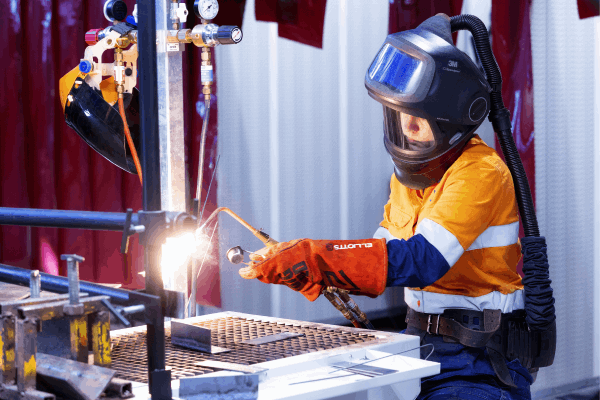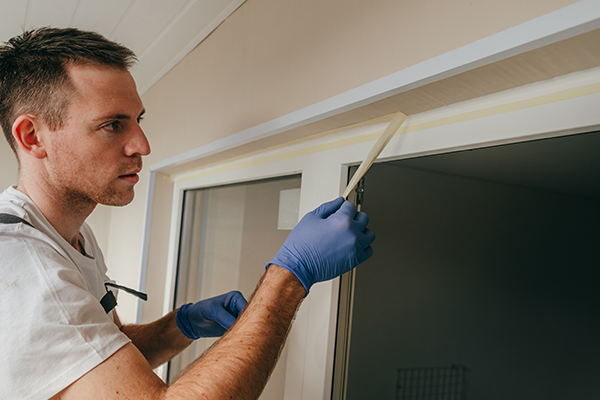Doing an apprenticeship is a great way to kickstart a career and get paid while training. It can also be a lucrative way to earn a living with some TAFE courses providing better financial outcomes than university courses. Amongst the highest paid apprenticeships are auto electricians and plumbers with earnings averaging over $120,000! So, how much can you earn, and what are the highest paid apprenticeships? We examine what qualifies as an apprenticeship, prospective income and which apprenticeships pay the most.
What is an apprenticeship?
An apprenticeship is a structured training program that combines formal education with on-the-job training. On average, apprenticeships take three to four years to complete, including study at school and practical skills learnt in the workforce. By the end of an apprenticeship, you will have achieved a nationally recognised certificate II or certificate III learning outcome.
How much can apprentices earn?
The potential for apprenticeship earnings is twofold. These are wages during the apprenticeship and potential earnings once qualified.
For an entry level apprentice, the average salary is $33,000 per year or $17 an hour. The pay rate increases each year and the average fourth year apprentice will earn about $26 per hour or $52,000 annually. Pay rates for apprentices are determined by a number of factors, including the age of the apprentice, the type of apprenticeship, location and level.
Once qualified, wages can vary greatly depending on the trade. When an apprenticeship is completed and the apprentice is fully qualified, employment earning potential is often higher than university graduates with trades like plumbing making on average $96,000 per year.
High paying apprenticeships
When choosing to pursue an apprenticeship, one of the factors you may want to consider is the future earning potential per trade. Here is a list of nine high paying apprenticeships, what they do, and potential earnings.
1. Auto electrician

The average annual salary for automotive electrician jobs in Australia ranges from $125,000 to $145,000.
An auto electrician specialises in electrical repairs and maintenance on vehicles. As an auto electrician, duties include diagnosing issues with electrical components, replacing electronic parts, testing vehicle wiring and researching wiring faults, to name a few.
To become an auto electrician, you need to complete a Certificate III in Automotive Electrical Technology (Apprenticeship), attending one class per week and be employed in the automotive industry. Upon successful completion of the four year apprenticeship, you will be eligible to receive the Certificate III in Automotive Electrical Technology and be a qualified automotive electrical technician.
2. Boilermaker

The average annual salary for boilermaker jobs in Australia ranges from $115,000 to $135,000.
Boilermakers work with steel and metal to construct, shape and assemble products and structures.
They are experts at working with metal and operating welding equipment to join, create or repair metal fabrications. Another duty is the responsibility for ongoing maintenance, upkeep and operation of boilers and other equipment.
To become a boilermaker, a Certificate III in Engineering - Fabrication trade - Sheetmetal (Apprenticeship) will give you the skills and knowledge to work in engineering and manufacturing areas where fabrication work is required. The course is three years and combines on-campus study with on the job placement.
3. Plumber

The average annual salary for plumbing jobs in Australia ranges from $90,000 to $120,000.
Plumbers install and maintain water, drainage, gas and sewer systems. As a plumber you will be responsible for installing pipes and fixtures, unclogging drains and a multitude of tasks in both residential and commercial areas.
If you want to become a qualified plumber, a Certificate III in Plumbing (Apprenticeship) will teach you skills in welding, draining, water supply, gas fitting, roofing and much more. On completion of this three year apprenticeship, you will become a qualified plumber and be eligible to sit the Victorian Building Authority Plumbing Registration exam to become a registered plumber.
4. Electrician

The average annual salary for electrician jobs in Australia ranges from $90,000 to $110,000.
As an electrician, you will be responsible for installing, maintaining and repairing electrical power, lighting, communications and control systems. This might be in homes, businesses or industrial buildings.
If you want to become an electrician, a Certificate III in Electrotechnology Electrician (Apprenticeship) will give you the skills to select, set up, install and maintain electrical equipment. The four year course consists of study one day per week combined with on the job training.
5. Diesel mechanic

The average annual salary for diesel mechanic jobs in Australia ranges from $80,000 to $95,000.
Diesel mechanics maintain, test and repair diesel motors and the mechanical parts of trucks, buses and other heavy vehicles that run on diesel fuel.
Upon completion of a Certificate III in Heavy Commercial Vehicle Technology (Apprenticeship), you will know how to repair and service heavy commercial diesel vehicles. You will understand how to repair faults on heavy commercial vehicle engines, transmissions, suspensions, steering, brakes and electrical systems.
6. Chef

The average annual salary for chef jobs in Australia ranges from $70,000 to $80,000.
As a chef, you will work in all areas of cookery including food preparation and cooking, kitchen management and menu planning. This work may be in a restaurant, commercial kitchen, cafe or even a food truck or on a cruise ship.
If you want to become a chef, a Certificate III in Commercial Cookery (Apprenticeship) will teach you everything from knife skills and food preparation to sustainable work practices and kitchen teamwork. This 112 week course requires you to work four days per week with an employer in the hospitality industry and study one day a week.
7. Painting and decorating

The average annual salary for painter jobs in Australia ranges from $70,000 to $80,000.
Painters and decorators have the creative role of decorating surfaces with paint, varnish, wallpapers and other finishes. Whether it is a commercial or residential project, the painter and decorator will protect, maintain and decorate both exterior and interior surfaces for the client.
To become a painter and decorator, a Certificate III in Painting and Decorating (Apprenticeship) provides training in every aspect of the field from surface preparation and painting to colour theory and decorative finishes. The three year course combines weekly study with on the job training in the painting and decorating industry.
8. Carpenter

The average annual salary for carpenter jobs in Australia is $65,000 to $85,000.
Carpenters are also known as ‘chippies’ and work with timber to construct, install, renovate and repair structures or fixtures. As a carpenter, you would work with all sorts of materials including wood, plywood and wallboard. A carpenter does everything from constructing timber fixtures to large projects like roof and floor construction.
To become a carpenter, a Certificate III in Carpentry (Apprenticeship) will teach you carpentry skills as well as communication skills and an understanding of relevant trade and technical terms.
9. Bricklayer

The average annual salary for bricklayer jobs in Australia ranges from $60,000 to $80,000.
Bricklayers are skilled at laying bricks, pre-cut stone and concrete blocks in mortar. They are an important part of the building industry, constructing brick walls for residential and commercial ventures and other structures like foundations, chimneys and decorative masonry features. Bricklayers understand the different types of bricks available and how to construct or repair walls in accordance with industry standards.
To become a qualified bricklayer, you’ll need to complete a Certificate III in Bricklaying/Blocklaying (Apprenticeship) - a three year course where you can work and learn at the same time. The course will teach you how to plan and set out brick laying projects, how to interpret plans, measure jobs and use specific materials.
How to get an apprenticeship
Once you have decided to do an apprenticeship, the next step is to work towards getting it. The following explains more about apprenticeships and how to find one.
- Doing a pre-apprenticeship. A pre-apprenticeship will help you prepare for a registered apprenticeship and learn basic skills of the trade. By offering an insight into a career, it can help you decide if the trade is right for you. Pre-apprenticeships also look impressive on a CV and many employers look favourably on someone who has had the initiative to do a pre-apprenticeship course. They may be more likely to hire someone with a pre-apprenticeship certificate.
- Research different courses. Make sure you do your research when looking for an apprenticeship. Understand what each trade entails and if it is something you want to do long term. Check out the courses available and the career pathways they could lead to. Find out if any of the trades are in demand at the moment and potential income.
- Understand study options. Look into what the study options are for each apprenticeship. Some apprenticeships require weekly classes combined with work placement. Others may only require monthly training. Find out if classes are on campus or if you have an online option.
- Find out what apprenticeships are available. To find out what apprenticeships are available, go to your local Skills and Jobs Centre, TAFE, schools and universities, commercial job sites or online sites like Australian Apprenticeships.
- Find an apprenticeship with an employer. You can look for an apprenticeship the same way you would look for a job by going online or registering with an employment agency. You can also go to businesses that operate in the industry and introduce yourself or set up an appointment and take along your CV.
- Word of mouth. Put the word out amongst friends and family that you are looking for an apprenticeship.
Apprenticeships are a stepping stone to a rewarding career. With such a wide variety of apprenticeships, it is important to understand what is available and potential income. For further information on apprenticeships, contact TAFE Gippsland.